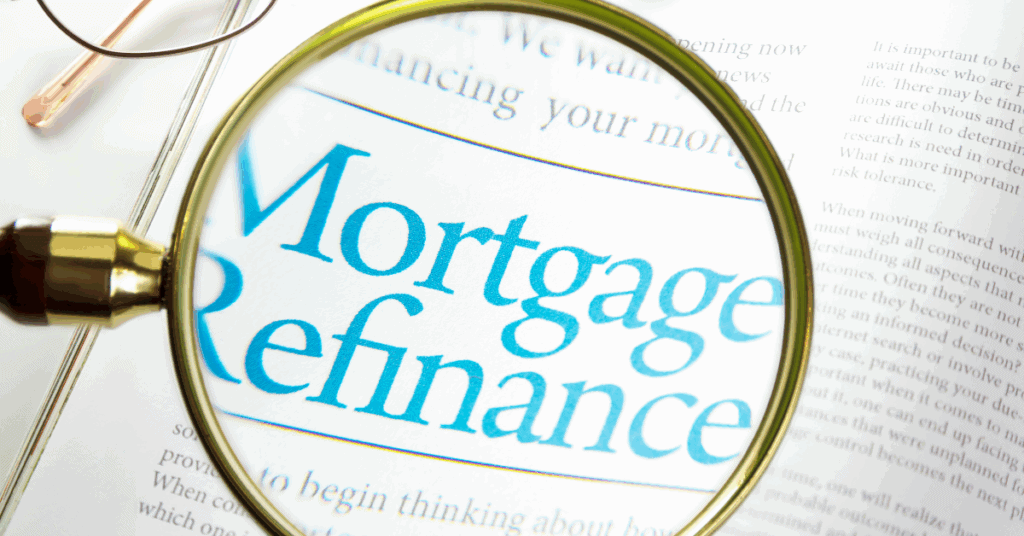Get Expert Financing
- Matched with investor-friendly lenders
- Fast pre-approvals-no W2s required
- Financing options fro rentals, BRRRR, STRs
- Scale your portfolio with confidence
With American household debt reaching a record-high $14.6 trillion in the spring of 2021, there’s no wondering why so many people are looking into debt consolidation refinancing.
While it’s not the right choice for every consumer who’s swimming in debt, it could be the perfect opportunity for you to improve your finances and to feel better about your financial future.
There’s no shortage of ways to consolidate debt.
Let’s look at why debt consolidation refinancing is something you should strongly consider.
You have a mortgage. You also have a lot of consumer debt.
While it’s okay to keep them separate, it’s not your only option. A debt consolidation refinance loan could be the answer to many of your financial concerns.
The primary goal of any debt consolidation strategy is to reduce your monthly costs. And with a refinance, you can do just that in regards to both your mortgage payment and other debt obligations.
With debt consolidation refinancing — also known as a cash-out refinance — you borrow more money than your current mortgage balance. For example, if your mortgage balance is $200k, you could borrow $300k and use the difference to consolidate your debts.
In the end, you’re left with one monthly mortgage payment.
You’ve eliminated all your other debts through the use of cash via the equity in your home.
Before you decide in favor of debt consolidation refinancing, you must first make a list of your liabilities. From there, you can determine which ones you want to tackle with the cash that you receive from refinancing your loan.
Some of the most common types of debts include:
Whether or not you can consolidate all your debts depends on factors such as the equity in your home and the amount of money you’re comfortable borrowing in the form of a mortgage.
Knowing the types of debts you can consolidate is an important early step.
As complicated as it may sound, debt consolidation refinancing is a relatively simple process. The following are the basic steps you’ll take.
How many years do you have left on your mortgage? What is your interest rate? Is it a fixed-rate or adjustable-rate loan? Are you current on your payments? Answer these questions — among others — to ensure that you have a firm grasp of your mortgage and finances as a whole.
Not only should you make a list of your debts, but it’s also a good idea to make note of your monthly payment, interest rate, balance remaining, and term (if applicable). This list will help you decide which debts to consolidate.
Taking a look at your credit score is helpful too in understanding your debts, as well as your eligibility for a cash-out refinance mortgage.
Your lender will give you the final word as to how much equity you have in your home, but don’t let that stop you from estimating it early in the process.
How much principal have you paid on your current home loan? That will be your equity, or the amount of the property you own. What is the estimated value of your home? This is one factor that determines how much money you can borrow.
There are hundreds upon hundreds of lenders that offer debt consolidation refinance mortgage products. If you don’t know where to start, My Perfect Mortgage has the tools and resources to match you with the right lender. We can quickly and efficiently connect you with a lender who will guide you through the process and answer your questions.
Once your home is appraised, your lender will explain how much cash you can access. Remember, you don’t have to borrow all of the money that’s available to you. Review your offer and borrow what you need, based on the debts that you want to consolidate.
Once you decide on a lender, there’s less pressure on you. They’ll manage the entire refinance from beginning to end. You simply need to follow their guidance.
Just the same as any type of financial product or service, there are both pros and cons of debt consolidation refinancing. If you don’t understand both the good and the bad, you could end up making a poor decision that affects your finances for years to come.
Compare these pros and cons as they pertain to your financial circumstances and goals. This will help you determine which path is right at present.
Before you focus on the debt consolidation piece of the pie, you must first decide if refinancing your mortgage is the right thing to do.
If it’s not, it doesn’t matter how much you’ll benefit from debt consolidation refinancing. You won’t end up in a better place.
The following are some questions you can answer to help you decide if refinancing your mortgage is a good move.
Now that you understand the finer details of debt consolidation refinancing, there’s only one thing left to do: take action!
At My Perfect Mortgage, we’ll quickly and efficiently connect you with a lender who can walk you through the refinance process.
From application to approval to appraisal to closing, your lender will show you the way. In the end, you’re left with a new mortgage and consolidated debt. Get started with us today.
Our advice is based on experience in the mortgage industry and we are dedicated to helping you achieve your goal of owning a home. We may receive compensation from partner banks when you view mortgage rates listed on our website.


